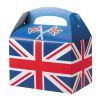|
ESL Forum:
Techniques and methods
in Language Teaching
Games, activities
and teaching ideas
Grammar and
Linguistics
Teaching material
Concerning
worksheets
Concerning
powerpoints
Concerning online
exercises
Make suggestions,
report errors
Ask for help
Message board
|
ESL forum >
Ask for help > Pronunciation
Pronunciation
|
|

almaz

|
|
Bruce, A-patch-ee or A-patch-ay (ee as in fleece or ay as in face)? Kara-okee or kara-okay? And here �s the clincher: Coy-otee or Coy-otay?
Just realised: you guys pronounce Iraq as �Eye - rack. It suddenly doesn �t matter.
In any case, /i:/ is part of the �fleece� lexical set, however you want to pronounce �apache �.
|
31 Jan 2012
|
|
|

yanogator

|
|
Hey, Alex,
Around here, we say a-patch-ee, kair-ee-o-kee and Cai-o-tee. Most people say ear-ak, but then some of us say Eye-talian. Oh, and the Japanese hara kiri is pronounced just like the old sports announcer Harry Carey. At least we don �t eat haggis!
Bruce |
31 Jan 2012
|
|
|

almaz

|
|
Well, ain�t that peculi-aaar? Considerin� that most o� you good ol� boys done come from Scotland in the firs� place! Bruce! |
31 Jan 2012
|
|
|

yanogator

|
|
Now, Alex, there �s no proof that Bruce was originally a Scottish name, although Robert the Bruce certainly anchored it there later. One theory is that it was originally French, from the town of Bruys. Anyway, here in the US, we take our names from all cultures, and I have no Scottish roots - pure Serbian on one side and German on the other. So there!
Bruce |
31 Jan 2012
|
|
|

almaz

|
|
Absolutely correct, Bruce. It �s been a Scottish name only since the 13th century, dammit!
By the way, did you know that a lot of German nonconformist protestants in early colonial America were lumped in with the Scots-Irish settlers simply because - I know you �ll find this hard to believe in 21st century USA - of their religion and the way they talked. |
1 Feb 2012
|
|
|

wysiwyg

|
As Bruce said , Alex, in American English the final -e of coyote , Apache, etc...is a patch-ee like in fleece.That �s why I �m trying to make this "list": it is very surprising for French people to hear that, because in our language every final e is silent. It �s slightly different from the sound in be or me, I guess it �s shorter (even though there �s no way to make a rule here, depending on the speakers and the sentences).
How do you say the name of the excellent writer Truman Capote ? Ca-pou-tay?
What about Bette Davis?
I (try to) speak British English, but I �m preparing a listening comprehension activity for my students, and both speakers being American teenagers, I �ll have to comment some words from a phonetic point of view.
Bruce, I �ve never heard of any violent French dance named Apache, I �ll have to check this.... :-)
Thank you anyway for helping me, any other suggestions welcome!
Alex, I �m going to Scotland at the end of the month, I �ll ask some Scotsman to say coyote and Apache for me (while eating haggis - which I love!)
|
1 Feb 2012
|
|
|

almaz

|
|
Interesting, wysiwig. British English does pronounce these words differently:
Truman Capote �s surname is pronounced with the American /i:/ sound, although it �s actually a Spanish name (so the final vowel sound should be more like /e/).
You might be interested to know that Scottish accents are unique among varieties of English insofar as "we can predict where vowels are phonetically long, and where they are phonetically short" (A. McMahon, An Introduction to English Phonology). |
1 Feb 2012
|
|
|

wysiwyg

|
Yes, it �s very interesting indeed...and quite difficut for non native speakers like me!
I don �t know much about Scottish accents, apart from their extraordinary Rrrrrrr ! What I know is that understanding my favourite singer �s interviews is sometimes impossible (as it is to English interviewers as well): Paolo Nutini has such a strong Scottish accent that even English journalists need subtitles...
|
1 Feb 2012
|
|
< Previous
1
2
|